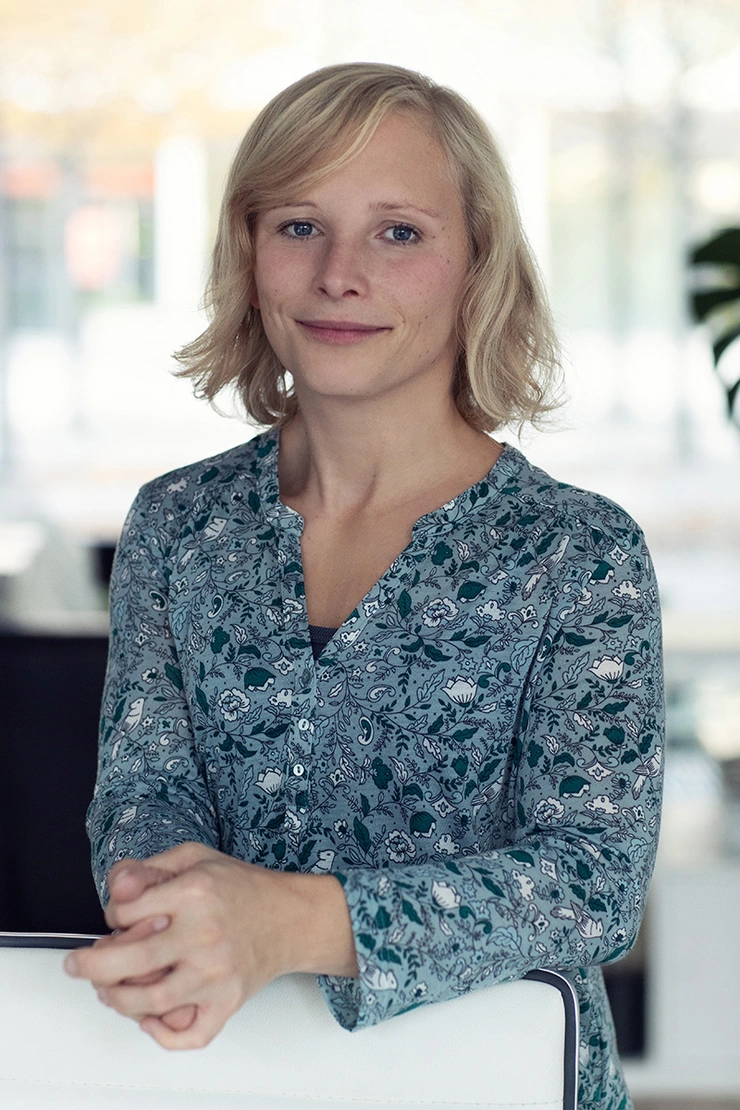The Representative board for severely disabled persons at the University of Erfurt: "Open eyes - open heart!"

The 35-year-old is quite pragmatic when it comes to "wording" - open yet sensitive. But she fights vigorously when it comes to the cause. Namely, to create a good workplace for these people at the University of Erfurt, despite all their impairments - be they physical or psychological. Franziska Gossen manages the secretariat of two professorships at the Faculty of Economics, Law and Social Sciences and has been involved - together with Gregor Herrmann and Susann Urtel - in the representative board for severely disabled employees of the University of Erfurt since 2018.
In this function, it is her task to communicate and represent the interests of severely disabled employees at the university - whether it is in application or recruitment procedures, in company reintegration after a long illness, in workplace design or in university committees, e.g. the Senate, where the representative for severely disabled employees also has the right to speak. As the representative of the severely disabled, Franziska Gossen has also been a member of the Diversity committee since its founding, a body that, among other things, advises the Presidium on fundamental questions of diversity - on the framework conditions, goals and possibilities for dealing constructively with diversity on campus and, of course, also on measures to protect against discrimination.
"It is important to me to raise awareness of the issue and to make those affected heard," says Franziska Gossen. "Because often their concerns are completely forgotten in everyday life - whether it's the wheelchair ramp being parked over with bicycles, a door that is so heavy that it can only be opened with both hands, the lack of a lift, low-contrast campus signage or poor room acoustics." And these are just the physical impairments that can usually be seen. But what about the mental ones? The invisible ones? At the University of Erfurt, there are currently around 40 severely disabled employees (or people with equal status) - at least that's how many are known to the representative body for severely disabled people. "In addition, there are certainly others who have not yet contacted us or taken advantage of our support. But we also want to think for them and be there when they need help," says the 35-year-old. "And we are committed to ensuring that the conditions for these people here on campus are so good that they enjoy coming to us, enjoy working here and feel comfortable. Because in the end, the entire university benefits from diversity and open cooperation."
Franziska Gossen knows what she is talking about. She herself has been severely disabled since childhood. A brain tumour - inoperable, fortunately not life-threatening, but nevertheless causing spasms that prevent her from controlling the right side of her body. Hardly visible at first glance, only the hand on her right arm seems deformed. Often does not do what it is supposed to. Sometimes it doesn't grip, sometimes it doesn't let go. "I have learned to deal with it," says the young woman. "I often have to be creative about it." What sounds so simple here was nevertheless a great effort: "For example, I had to learn to do everything with my left hand, although I'm actually right-handed." Riding a bike and learning to swim also cost Franziska Gossen more energy than others. "But I never wanted to let my impairment define me and luckily I succeeded. Of course, you have to think of something when you only have 1.5 hands at your disposal: While others move the knife when cutting a roll, I just move the roll. When I'm doing my manicure, I use my chin as an aid, and on my bicycle I had the gears and the rear brake built to the left. Everything works." And what about assistive devices at work? "Well, I only write with one hand. That's why I have a gamer keyboard, i.e. one that's a bit smaller so that my fingers don't have to cover such large distances between the keys. I get along fine with that. Oh yes, and I also got a pair of left-handed scissors." Franziska Gossen's need for support is manageable. For many others it is much higher. It is not a question of creativity, little tricks or "wanting". "We must not lose sight of these people - colleagues, fellow students. They deserve our support and above all our respect in our daily interaction - and I mean both 'sides'. Talking to each other, exchanging ideas, opening up to new perspectives, looking for solutions together - that's what it's all about. And in the end, that is not only the task of the representative body for the severely disabled, but the responsibility of all of us." So open your eyes - open your heart!"
And while she is saying this, Franziska is already working on a new idea. A kind of regulars' table - for people who are interested in the topic of severe disability - or even better: diversity - and want to get into an exchange with each other. Maybe once a month, maybe even right here on campus. Without coercion, without a lot of hoopla. A place of togetherness - open to everyone. "I'd like that," says the 35-year-old. "Feel free to write my contact under the text..."
We will: :-)
Franziska Gossen
Tel.: 0361/737-4900
